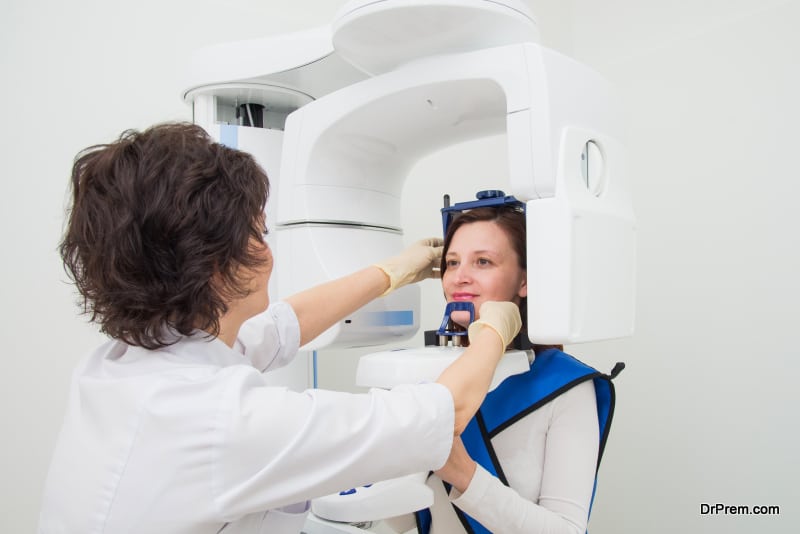If you’ve never been to the doctor for a routine physical, you may not know what to expect. Although all doctors practice differently, the basics of a physical are the same and may vary based on your sex and age. Here we’ll discuss some of the main things physicians check for and then outline some of the more specific checks that are done for men and women, as well as children and adults.
When Do I Need a Physical?

It’s recommended that you see your doctor for a routine physical once every year. This allows doctors to monitor any conditions you may have and identify any new ones. For students or athletes, entrance into a new school or joining a sports team might result in the need for an additional check-up.
How Long Will It Take?
The duration of a physical varies drastically from one doctor to the next. Some physicians are extremely thorough and will spend a great deal of time speaking with you before the physical examination begins. They may inquire about your work life, family, and any other personal matters you feel comfortable discussing. The physical examination itself shouldn’t take very long, unless the doctor encounters a prolem or issue that needs addressing.
What Will the Doctor Check For?
When it comes to the physical examination part of your annual check-up, there are some basic things that every doctor checks.
Vitals

Your vitals include your heart rate, blood pressure, temperature, and respiration. Each of these vitals should fall within a certain range that indicates they are normal and your body is functioning properly.
Your heart rate should range between 60 and 100, although many healthy individuals will show a heart rate below 60.
A healthy blood pressure should read 120 over 80 or lower. Anything showing 130 over 80 is considered high blood pressure. If you’re wondering what these numbers mean, the larger number (120),or systolic pressure, shows the amount of pressure in your arteries and the lower number (20), or diastolic pressure, indicates your blood pressure when your heart is between beats.
The doctor will determine your heart rate by checking your pulse. This is often done in your wrist or neck, where the arteries are pumping strong and easy to feel through the skin. Your pulse lets the doctor know how strongly your heart is pumping blood to the important areas of your body. Your heart rate is equal to the number of beats or pulses per minute.
A normal body temperature is 98.6 degrees. Your temperature can fluctuate slightly higher or lower than this number but any elevated temperature over time could indicate some type of infection or illness.
Questions or Concerns
This is your chance to ask your doctor about any questions or concerns you may have concerning your current health. Here are some things you may want to ask about.
- Has a certain part of your body been causing you pain or discomfort?
- Have you recently changed your diet or workout routine?
- Are you experiencing unexplained headaches or stomach aches?
- Are you having trouble sleeping?
- Are you experiencing stress or anxiety that is causing chest pains or other physical symptoms?
Your questions for the doctor don’t need to be this specific. Perhaps you are considering a new multivitamin or plan to travel outside the country and you’re wondering if you need any vaccinations. You can discuss both serious and general inquiries with your physician. No questions is very a bad one and if it’s something that’s plaguing you, it’s best to ask. The same holds true for any physical ailments you’re having. These could be signs of a more serious, underlying condition. Don’t be afraid to speak up.
Your doctor will also make a determination about your current health based on your general demeanor and appearance. If you enter the office seemingly frazzled, disorientated, and showing poor hygiene, your doctor may inquire about your current mental state. General conversation will also tell your doctor a lot about how you’re functioning on a daily basis and if there’s a need for psychological evaluation.
Physical Checks

After speaking to you and checking your vital signs, the doctor will perform some routine physical checks. These include checking your heart, lungs, head and neck, as well as reflexes, and abdomen.
During the heart exam, your doctor will use a stethoscope to listen to your heartbeat. This will allow them to detect a possible heart murmur, irregular heartbeat, or signs of underlying heart disease.
The lung exam also includes the use of a stethoscope where the physician will listen to the air entering and exiting your lungs. They will listen for signs of wheezing, crackling, or other signs of compromised breathing.
The doctor will use their hands and small tools to check things like your throat, teeth, eyes, ears, nose, and thyroid.
The abdominal check will require you to lay down on the examining table. The doctor will use their hands to apply pressure to your stomach. During this exam they are checking for the presence of fluid, liver size, and any tenderness. They may also use a stethoscope to listen for bowel sounds.
Male and Female Exams
Because men and women require different, more specific types of physical evaluations, your doctor may perform different exams and checks depending on your sex. Here’s a brief overview of what to expect.
Men

- Prostate
- Testicular
- Penis
- Hernia
Female

- Breast
- Pelvic
The same holds true for children. Different exams are done to ensure that children are developing properly. These include:
- Height and weight
- Balance
- Spinal
- Vision
- Hearing
Again, all exams may differ from doctor to doctor, but the general checks are universal.
Schedule Your Annual Check-Up Today
Even if you’re in excellent health, it doesn’t mean that you should skip your annual exam. Checking in with your doctor each year helps ensure that you remain as healthy and happy as you currently are. Sometimes, underlying issues don’t show obvious symptoms or signs until it’s too late. The best way to remain healthy is to identify and diagnose conditions early. And now that you know what to expect from your annual physical, there’s no reason not to schedule one today.
Article Submitted By Community Writer




